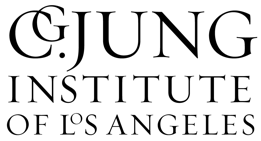
POSTPONED – Book Talk and Signing with Christi Taylor-Jones, author of “Touched by Suicide”
In Person + Zoom: Flying Saucers: A Modern Myth of Things Seen in the Skies
In-Person Only: Embodied Resourcing Through Image Making
POSTPONED: First North American Conference on Infant, Child and Adolescent Jungian Analysis
POSTPONED – Book Talk and Signing with Christi Taylor-Jones, author of “Touched by Suicide”
In Person + Zoom: Flying Saucers: A Modern Myth of Things Seen in the Skies
In-Person Only: Embodied Resourcing Through Image Making
POSTPONED: First North American Conference on Infant, Child and Adolescent Jungian Analysis
« All Events « All Public Programs « All Training Programs
- This event has passed.
In Person + Zoom : Toward a Jung/Bion Dialogue: W.R. Bion’s Reading of C.G. Jung’s Memories
June 15, 2024 @ 9:00 am - 12:00 pm
Event Navigation

Presented by Joseph Aguayo, Ph.D.
Discussants: Ann Addison, Ph.D. & Mark Winborn, Ph.D.
Two of the most famous psychoanalysts after Sigmund Freud are C.G. Jung and W.R. Bion. Both men practiced psychoanalysis from different perspectives. In 2016, Joseph Aguayo was allowed to study Bion’s personally annotated copy of C.G. Jung’s autobiography, Memories, Dreams and Reflections (MDR). What did Bion think about Jung’s ideas? This program, a first-time collaboration in Los Angeles between a Jungian psychoanalytic institute and a contemporary British object relations institute, will provide insight into that question.
Analyst and scholars familiar with Bion’s work know that he rarely cited the work of contemporary analysts outside of the London Klein group. While he remained interested in the work of non-analytic authors (e.g., Kant, Keats, and Milton), it is unusual to see that he took a degree of interest in Jung’s MDR.
To the question of why we should bother with Bion’s margin notes, Andre Green (1992) when commenting on Bion’s Cogitations, notes and sketches he left behind in notebooks, wrote: “Bion’s sketches and cast-offs are much more valuable than the common run of material that finds its way into print. These day-to-day jottings are like a breath of fresh air from the open sea.”
Learning objectives:
At the end of this activity, participants should be better able to:
-
- Name a Kleinian concept that Bion used to understand Jung’s unusual childhood experiences described in Memories, Dreams, and Reflections.
- Describe how Jung’s concept of “myth” and Freud’s concept of “construction” could be used by Jungian and Freudian psychoanalysts to accomplish similar objectives.
- Compare and contrast Jung’s ideas about intuition with Bion’s concept of “O.”
- Identify one way that Bion’s reading of Memories, Dreams, and Reflections influenced his 1974 Brazilian Lectures.
Joseph Aguayo, PhD is a Training and Supervising Analyst at the Psychoanalytic Center of California in West Los Angeles. He is a Member of the New Center for Psychoanalysis and a Guest Member of the British Psychoanalytical Society in London. He holds UCLA doctorates in both Clinical Psychology and European History. He has two co-edited publications, Wilfred Bion: Los Angeles Seminars and Supervision; and Bion in Buenos Aires (Karnac Books, 2013; 2017). His latest book is Introduction to the Clinical Work of W.R. Bion (Routledge, 2023). He has a forthcoming book, Bion in the Consulting Room, co-authored with R.D. Hinshelwood, Sira Dermen and Nicola Abel-Hirsch.
Ann Addison, PhD is a Lecturer in The Department of Psychosocial and Psychoanalytic Studies at the University of Essex. Her research focuses on the history, comparison, and contemporary application of psychoanalytic concepts, with reference to the work of W.R. Bion and C.G. Jung. In 2016, she was awarded a PhD for her research, A Study of Transference Phenomena in the Light of Jung’s Psychoid Concept, and she has since published a book on this subject, Jung’s Psychoid Concept Contextualized. Teaching subjects in her portfolio range through Jungian, Object Relations, and other psychoanalytic theories; clinical techniques and reflective practice; psychoanalysis and the visual arts; applied psychoanalysis; and research methodology. As a Training Analyst, Society of Analytical Psychology, she also practices as a Jungian Psychoanalyst and Supervisor and has a clinical practice in London working with adults. Other positions she holds include Co-Editor-in-Chief of the international peer review Journal of Analytical Psychology.
Mark Winborn, PhD is a Jungian psychoanalyst and clinical psychologist. He is a Training Analyst with the Inter-Regional Society of Jungian Analysts and the C.G. Jung Institute – Küsnacht. His primary areas of interest are analytic technique and the integration of psychoanalytic theories. He has published or edited five books: Deep Blues: Human Soundscapes for the Archetypal Journey; Shared Realities: Participation Mystique and Beyond; Interpretation in Jungian Analysis: Art and Technique; Beyond Persona: On Individuation and Beginnings with Jungian Analysts (with Lavinia Țânculescu-Popa); and Jungian Psychoanalysis: A Contemporary Introduction (part of the Routledge series – Introductions to Contemporary Psychoanalysis), as well as numerous articles and book chapters. He received the Gradiva prize from the National Association for the Advancement of Psychoanalysis for the best article published in 2022; was a Gradiva finalist in 2014 for the best edited book in psychoanalysis; and an American Board & Academy of Psychoanalysis Book Prize Finalist in 2019. Additionally, he has presented papers at the past five Congresses of the International Association for Analytical Psychology (2010, 2013, 2016, 2019, 2022). He lectures widely both in the USA and internationally.
For more information and for payment, please visit: https://myemail-api.constantcontact.com/Toward-a-Jung-Bion-Dialogue-on-June-15–2024.html?soid=1103254901410&aid=UIUBb4uDUy8
Continuing Education:
Psychologists/LCSWs/MFTs/LPCCs: The C.G. Jung Institute of Los Angeles is approved by the American Psychological Association to sponsor continuing education for psychologists. The C.G. Jung Institute of Los Angeles maintains responsibility for this program and its content.
Nurses: The C.G. Jung Institute of Los Angeles is an accredited provider approved by the California Board of Registered Nursing. Registered Nurses may claim only the actual number of hours spent in the educational activity for credit.
